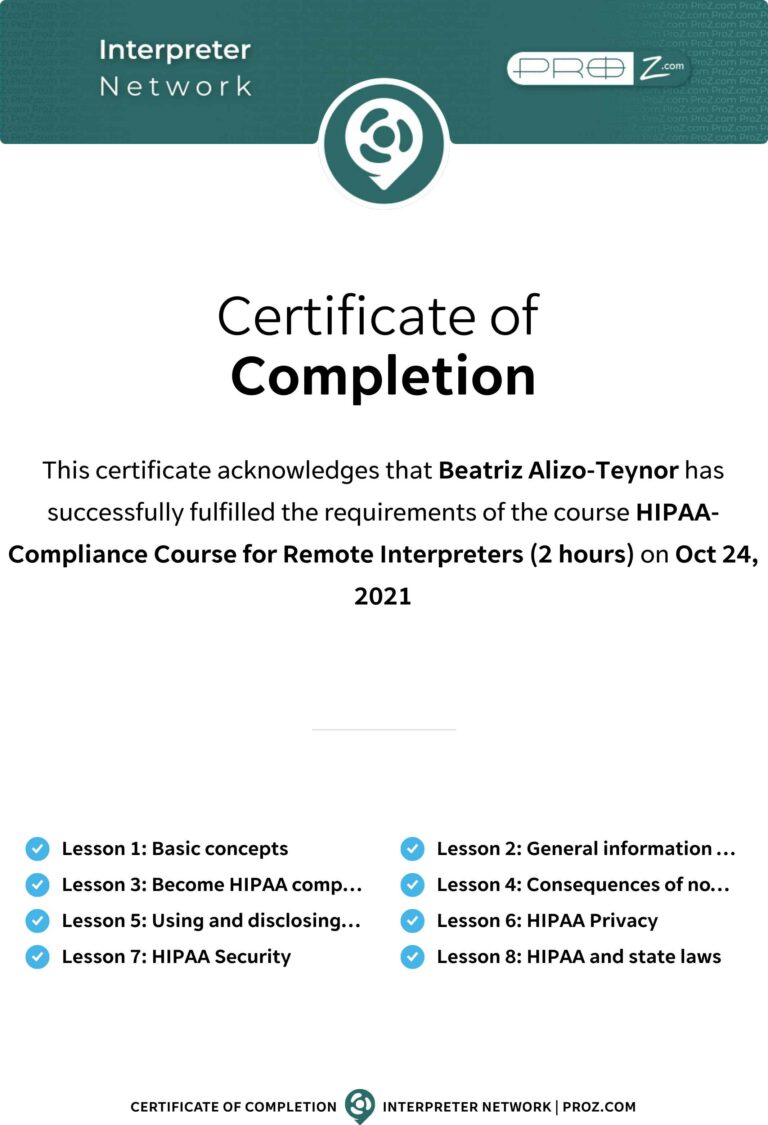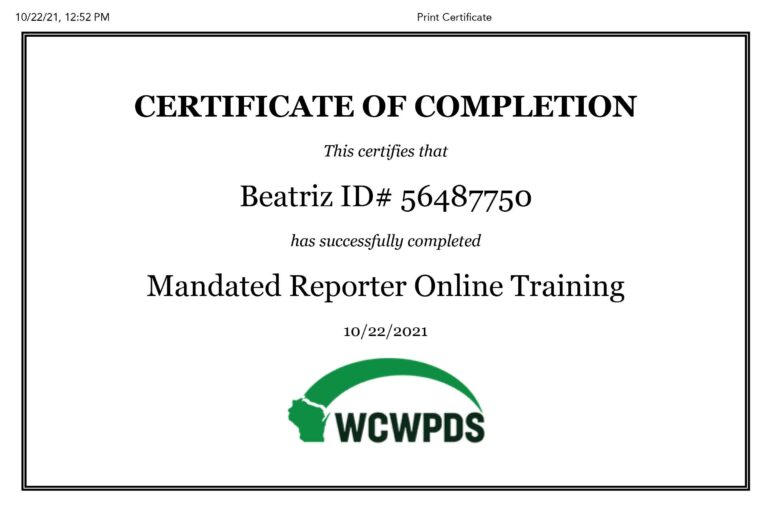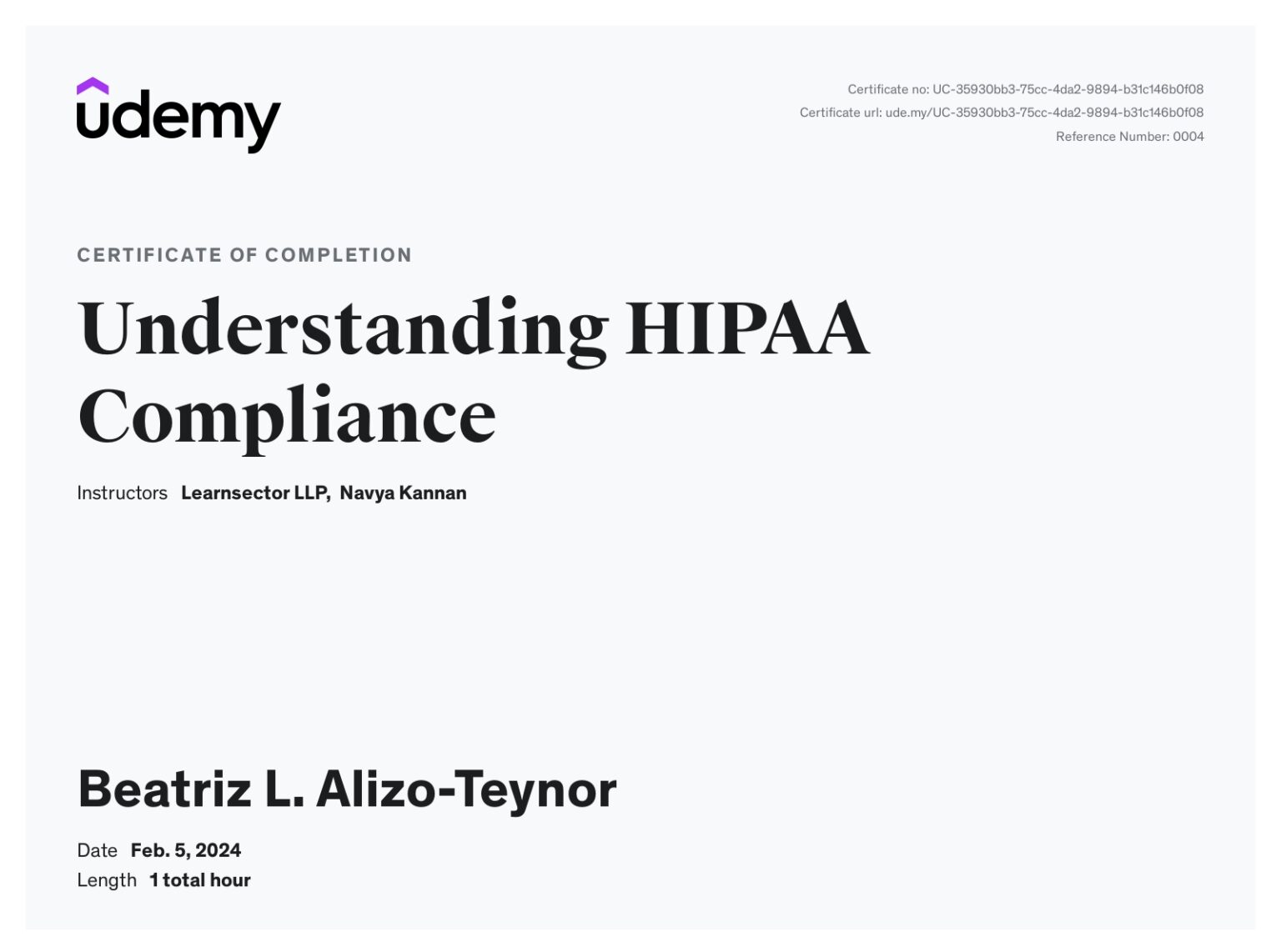HIPAA Compliance Statement Upholding HIPAA standards to ensure the confidentiality of your Protected Health Information (PHI)


HIPAA Compliance Statement
As a medical translations service provider, E Global Training is required by the Health Insurance Portability and Accountability Act of 1996 (HIPAA) to protect the confidentiality of the protected health information (PHI) we translate. The following HIPAA statement outlines how we do this:
– E Global Training promises to use protected health information (PHI) for the purposes of translation or transcription only, as stipulated in our business associate contract with the covered entity.
– E Global Training will not use or disclose protected health information (PHI), as required by law.
– E Global Training will use all appropriate safeguards to prevent the use or disclosure of protected health information (PHI) either by accident or with reasonable cause.
– E Global Training have the appropriate administrative, physical, and technical safeguards in place (including written documents) to ensure the confidentiality, integrity, and availability of all electronic PHI we receive.
– E Global Training have the appropriate procedures in place to apply corrective action, should any violation of the HIPAA requirements occur, either accidentally or with reasonable cause.
– E Global Training will immediately report to clients any disclosure of PHI, as soon as it comes to our knowledge, as per our client agreement.
– E Global Training translators are requested to sign a non-disclosure contract and are aware of the legal repercussions should any disclosure of PHI occur.
Administrative Safeguards (HIPAA 164.308)
-E Global Training has implemented administrative safeguards to provide for the appropriate assignment of access permissions to the appropriate person. Information security awareness training is provided to all staff members, and the appropriate contracts are in put in place between the covered entity.
Physical Safeguards (HIPAA 164.310)
The appropriate measures are in place to protect all office locations, as thoroughly as possible, from fire, flood, or theft, and any other preventable or foreseeable natural disaster.
Technical Safeguards (HIPAA 164.312)
-E Global Training comply with the technical safeguards outlined by HIPAA. We have our own secure server and rely on Secure Socket Layer (SSL) technology to make sure that any ePHI sent over the Internet is protected. We also conduct daily backups and are committed to the continued improvement of our data protection systems. For further information, please review our Privacy Policy.
Title VI of the Civil Rights Act of 1964, Executive Order 13166
Title VI of the Civil Rights Act of 1964, Executive Order 13166 make the failure of recipients of Federal financial funding to provide language access a form of national origin discrimination. Any organization receiving any Federal financial assistance, including Medicare, Medicaid, and/or CHIP, is subject to this law.
Section 1557 of the Patient Protection and Affordable Care Act prohibits discrimination on the basis of national origin. Having ongoing linguistic support for interpretation and translation is thus paramount to staying compliant with the law by providing an equal level of care to all patients.
A variety of Federal, State and local laws require or encourage medical practitioners to provide language access to LEP patients. The question is how to minimize the cost of providing this access without the risk of reducing the QoS.
Technology advances can reduce resource and cost issues. For example, a facility, which may not be required to provide an in-person interpreter, may now be able to provide interpretive services through Video Remote Interpreting (VRI) or over-the-phone interpreting (OPI).

